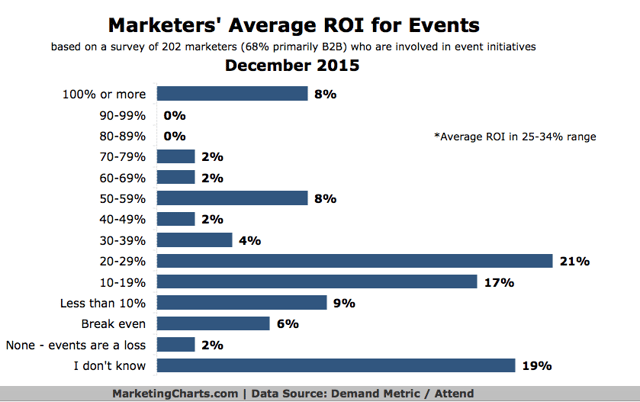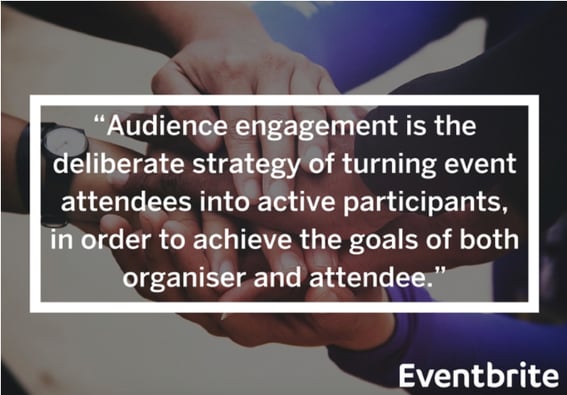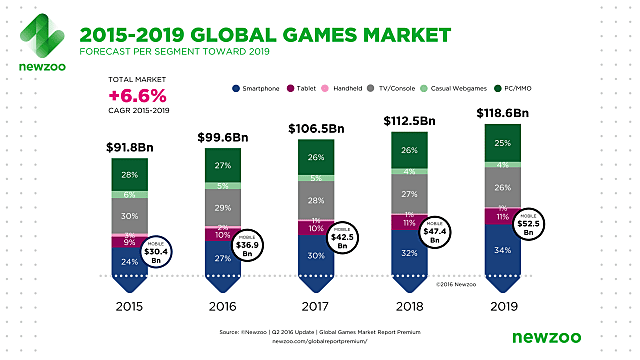Historically, business events have measured satisfaction using basic metrics such as attendance and post-event surveys. While helpful, these metrics do not tap into the social behavior, engagement, or micro-satisfaction levels of attendees – all important metrics to understand how to optimize and drive a net positive ROI for an event.
-1.jpg?width=711&name=1200x627-3%20(1)-1.jpg)
 Thankfully, the emergence of mobile games has allowed companies to pinpoint details that were previously inaccessible. Games can measure engagement down to a specific second, use trivia and other fun activities to drive engagement, and get real-time feedback on what is working and what could be improved.
Thankfully, the emergence of mobile games has allowed companies to pinpoint details that were previously inaccessible. Games can measure engagement down to a specific second, use trivia and other fun activities to drive engagement, and get real-time feedback on what is working and what could be improved.
These factors are making games extremely popular with event organizers and fueling the event management software industry, which is expected to grow at 8.4% annually through 2020.
4 Reasons to Incorporate Mobile Games in Your Next Business Event Toolkit
1. Games Add Valuable Metrics and Data to Calculate ROI
In today’s business environment, events are typically tied to certain goals that event marketers shoot for. Based on these goals, metrics are defined and measured to see whether or not an event is successful.
Some common goals and metrics of events include:
- Introduce a new product or service: measure exposure rates to new people
- Generate sales leads: measure the amount of qualified leads collected
- Attract new strategic channel partners: measure how many new partners acquired
- Build brand awareness: measure exposure and engagement at an event
- Launch in a new market or territory: a combination of all of the above
Mobile games add new metrics such as engagement figures, social listening, targeted messaging, social check-ins, and more. These touch points are all measured to give accurate insight on specific content segments and to measure ROI depending on an event’s goals.
For example, if your goal is to build brand awareness, a mobile game can use a trivia game or an interactive quiz to set up a live challenge and encourage engagement and social sharing by attaching incentives to the competition. This is a form of valuable active participation that can be utilized..
2. Games Benefit Attendees Just as Much as Event Planners
According to a study conducted by the Event Marketing Institute, by 2016 it was estimated that 88% of event planners expected their attendees to consider mobile event apps critical to their event experience. Also, it was predicted that 86% of planners will utilize an app at their next event to drive engagement and collect valuable feedback.

For event attendees, games can be used to build excitement prior to an event, organize essential information, and give an attendee a chance to connect and network with organizers. This added benefit provides a two-way feedback loop and more interactive experience to help provide an engaging event.
3. Mobile Games Are Growing in Popularity with Adults
Contrary to popular belief, mobile games are becoming more and more commonplace in professional environments. Jane McGonigal, author of Reality is Broken: How Games Make Us Better and Can Change The World, found that the average gamer is 35 years old and that 61% of senior executives surveyed say they currently take daily game breaks at work.
The gaming market itself is also steadily increasing with 2019 global projections of over $118 billion in revenue, with 35% being from smartphones or tablets.
By adding a game to your next business event toolkit, you will be offering a method of communication and interaction that puts the “fun factor” back into a live event. Also, participants can benefit from the learning and knowledge retention that games provide.
4. Games Offer Real Time Targeting and Insights
Mobile games at events will allow event organizers to measure real-time metrics and drive “right time” interactions. Push notifications, alerts, and in-app triggers can be used to get a better understanding of event attendees' behavior and offer appropriate calls-to-action (CTAs).
Depending on your business event and marketing strategy, you can even try to drive live conversions for sales, email leads, or any other kind of goal that can be properly integrated. This is extremely valuable as event attendees already “want” to be there and are generally receptive to whatever the event agenda may contain. The flexibility found in mobile games makes all of this possible.
Conclusion
Business events of the future will be highly interactive and driven on engagement-based initiatives and agendas. As the popularity and usage of games continue to increase, event organizers should leverage technology to drive appealing content (sales) and add games to their business event toolkit to obtain positive feedback during and after the event (engagement). Companies and event organizers that find this balance will ultimately see greater conversions for event goals and gain a competitive advantage.






-1.jpg)
.jpg)

